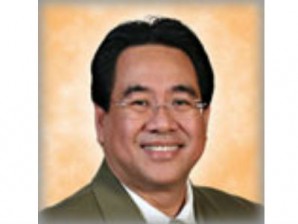MANILA, Philippines—Congressmen opposed to the reproductive health (RH) bill on Friday promised to study the proposed “watered-down” version introduced by the House leadership before they went on a two-week break the other day.
But Cagayan de Oro Rep. Rufus Rodriguez said the proposed substitute to House Bill No. 4244 could not be simply taken up in plenary at this stage in the legislative process. He said it would have to be referred back to the proper committee, which would then present the new version to the plenary.
“It is not acceptable procedurally and in substance,” he told the Inquirer by phone.
At the outset, Rodriguez rejected the intention of HB 4244 to use public money to distribute free contraceptives. He said he was standing by his position even if the new version now allows only RH devices that “do not prevent the implantation of a fertilized ovum as determined by the Food and Drug Administration.”
“This bill will promote a culture of permissive sex, a culture of contraception, and eventually, a culture of abortion,” he said.
An Waray party-list Rep. Florencio Noel, who is also opposed to the RH bill, said he would spend the congressional break to study the proposed substitute bill.
“I don’t think it is the intention of the House leadership to ram it through everyone,” said Noel, who admitted he was not part of the group that discussed the introduction of a revised RH bill.
On Thursday, Speaker Feliciano Belmonte said the new version “answers a lot of the objections to the original bill.”
Rep. Edcel Lagman, a principal author of the bill, said the proposed amendments “do not dilute or destroy the essence of the original bill.”
The proposed substitute’s declaration of policy now says that the State would guarantee “public”—not “universal”—access to “relevant information and education on medically safe, legal, ethical, affordable, effective and quality reproductive health care services, methods, devices, and supplies…”
Priority would now be given to “the needs of poor women and men in marginalized households as identified through the National Household Targeting System for Poverty Reduction (NHTS-PR) and other government measures of identifying marginalization…”
“The State shall also promote openness to life, provided that parents bring forth to the world only those children that they can raise in a truly humane way,” it adds.
The proposal did not say how young or old a “poor” man or woman should be to benefit from free RH services, methods, devices, and supplies, a lingering question by critics of the measure.
The new version also amends Sec. 7, which mandates “all accredited health facilities” to “provide a full range of modern family planning methods…” An exception is “the case of specialty hospitals and hospitals owned and operated by a religious group.”
